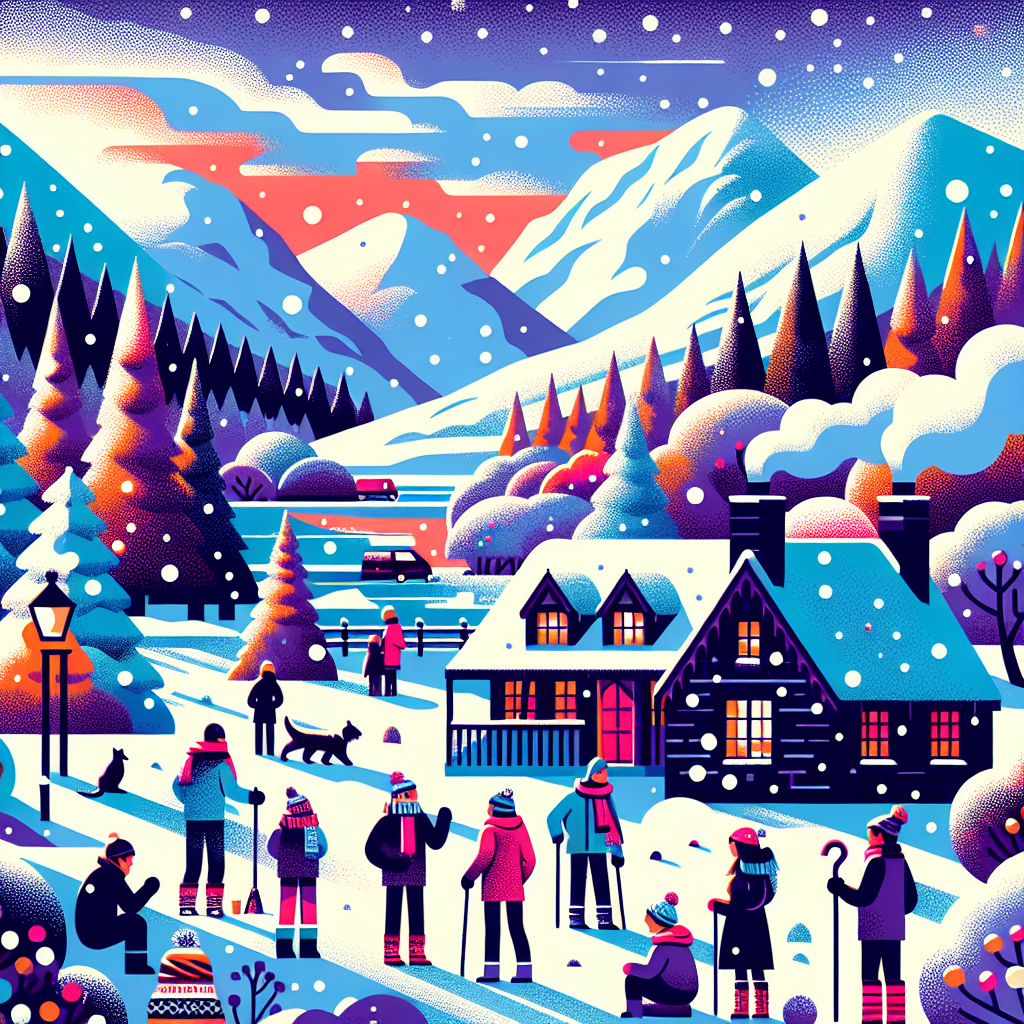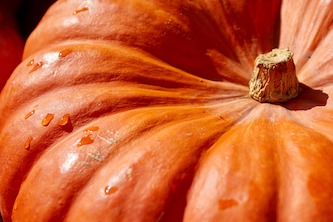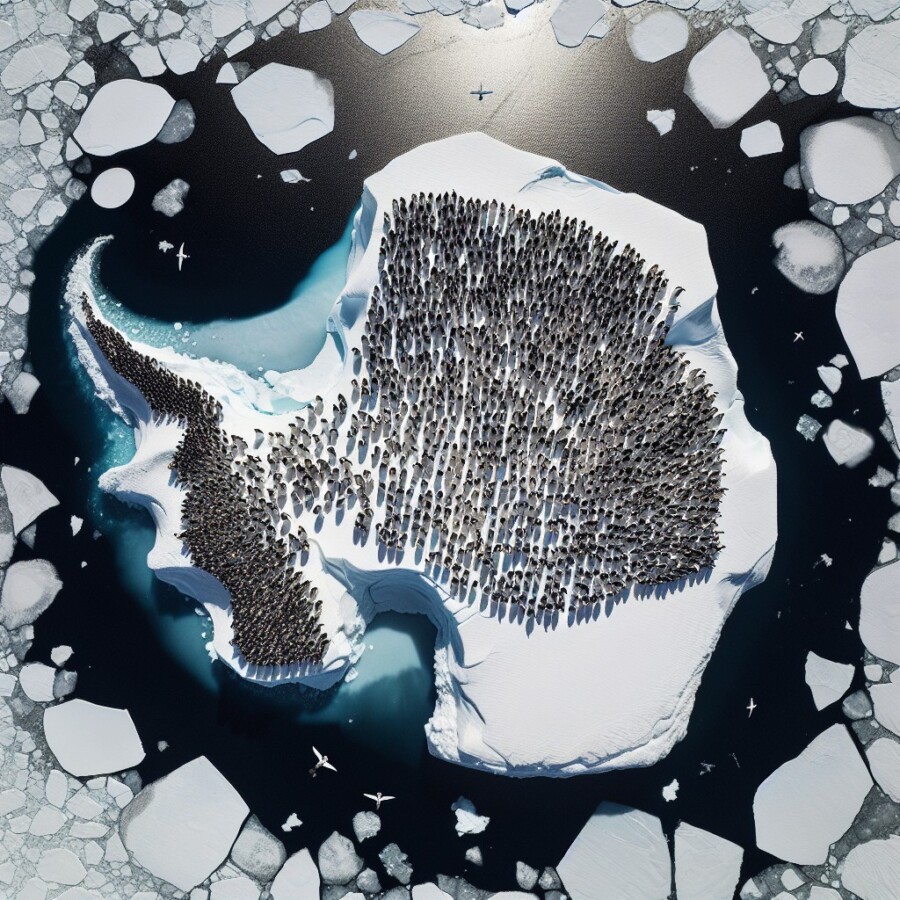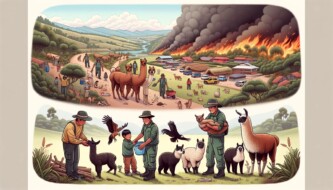A significant drop in temperatures has recently affected the UK, driven by an arctic blast that has resulted in widespread frost and snowfall, particularly in Scotland. This cold weather has led to a notable decrease in temperatures overnight, setting the stage for a frigid weekend that may bring substantial snowfall and blizzard-like conditions. Health authorities across England have issued amber alerts, indicating a heightened risk of health issues, especially for vulnerable populations. Local NHS services are advising residents to limit outdoor activities during the coldest times of the day, particularly early mornings when frost is most severe.
The weather warnings extend across most of England, Wales, and Scotland from Saturday to Monday, with specific alerts for snow and ice. Northern Scotland has already experienced snowfall, with reports of a picturesque winter landscape in the Highlands. This cold snap marks a stark contrast to the unusually mild weather experienced during the festive season, where temperatures reached between 11°C and 13°C on Christmas Day. The current temperatures are expected to be around 5°C below the January average, with wind chill making it feel even colder.
The UK Health Security Agency (UKHSA) has issued health alerts to inform healthcare providers about the potential impact of the cold on public health. These alerts are particularly aimed at protecting the elderly and those with pre-existing health conditions. Local NHS services are actively sharing advice on how to stay safe during this cold weather, urging residents to avoid going out during the early morning and late evening when conditions are most treacherous.
As the weather system approaches the UK, rain is expected to transition into snow, particularly in southern England, before reverting back to rain later in the evening. For regions such as Wales and northern England, forecasts predict significant snowfall, with accumulations of up to 30 cm possible in higher areas. This weather pattern poses risks for travel disruptions and power outages, especially in rural communities that may become isolated due to heavy snowfall.
The recent cold snap follows a series of severe weather events, including heavy rain and flooding that affected many areas, particularly in Greater Manchester. The Department for Work and Pensions (DWP) has not announced any new cold weather payments, which are provided to eligible households during prolonged periods of extreme cold. The dramatic shift in weather from the warm December to the current cold conditions highlights the ongoing changes in the UK’s climate, as evidenced by the Met Office’s reports indicating that 2024 is on track to be one of the warmest years recorded.
Original news source: Temperatures drop across UK as arctic blast brings more snow (BBC)
🎧 Listen:
Slow
Normal
Fast
📖 Vocabulary:
| 1 | arctic | Relating to the regions around the North Pole, characterized by cold temperatures |
| 2 | frigid | Extremely cold in temperature |
| 3 | blizzard | A severe snowstorm with strong winds and low visibility |
| 4 | amber | A warning level indicating a moderate risk |
| 5 | vulnerable | Susceptible to harm or attack |
| 6 | picturesque | Visually attractive, especially in a quaint or charming way |
| 7 | stark | Severe or bare in appearance or outline |
| 8 | treacherous | Hazardous or dangerous, especially due to hidden or unpredictable risks |
| 9 | transition | The process of changing from one state or condition to another |
| 10 | accumulations | The gathering or amassing of something, often in large quantities |
| 11 | disruptions | Interruptions or disturbances that prevent normal operation |
| 12 | isolated | Separated from others, often due to geographical or social barriers |
| 13 | prolonged | Continuing for a long time or longer than usual |
| 14 | dramatic | Noticeable and sudden, often in a way that causes strong emotions |
| 15 | ongoing | Continuing without interruption or change over time |
Group or Classroom Activities
Warm-up Activities:
– NEWS REPORTER ROLE-PLAY
Instructions: Divide the class into small groups. Each group selects a news reporter role to play (e.g., weather reporter, health advisor, local resident). They will prepare a short news segment based on the article, highlighting key points about the cold weather and health alerts. After preparation, each group presents their segment to the class.
– HEADLINE CREATION
Instructions: Ask students to create catchy headlines based on the article’s content. They should focus on making the headlines engaging and informative. After they’ve created their headlines, have a few students share them with the class and discuss why they chose those particular words.
– OPINION SPECTRUM
Instructions: Create a line in the classroom labeled “Strongly Agree” to “Strongly Disagree.” Read statements related to the article, such as “Health alerts are essential during cold weather.” Students will position themselves on the line according to their opinions. Afterward, discuss why they chose their positions, encouraging them to use reasoning and examples.
– PAS THE STORY
Instructions: Students will sit in a circle. One student starts by summarizing one key point from the article. They then pass the “story” to the next student, who adds another point. This continues until everyone has contributed. Finally, discuss the overall narrative created by the class and how it reflects the article.
– VOCABULARY PICTIONARY
Instructions: Choose key vocabulary words from the article (e.g., blizzard, amber alert, frost). Divide the class into teams. One student from a team will draw a word on the board without using letters or numbers while their team guesses the word. Set a time limit for each round to keep the activity lively.
🤔 Comprehension Questions:
1. What has caused the significant drop in temperatures in the UK recently?
2. Which regions in the UK are experiencing snowfall and frost due to the cold weather?
3. What health risks have been highlighted by health authorities in relation to the cold weather?
4. How are local NHS services advising residents to respond to the cold conditions?
5. What are the expected temperature differences compared to the January average during this cold snap?
6. What specific weather alerts have been issued for the upcoming weekend in the UK?
7. How does the current cold weather contrast with the temperatures experienced during the festive season?
8. What potential impacts on travel and rural communities are anticipated due to the expected snowfall?
Go to answers ⇩
🎧✍️ Listen and Fill in the Gaps:
A significant drop in temperatures has recently affected the UK, driven by an arctic blast that has resulted in widespread frost and snowfall, particularly in Scotland. This cold weather has led to a (1)______ decrease in temperatures overnight, setting the stage for a frigid weekend that may bring substantial snowfall and blizzard-like conditions. Health authorities across England have issued (2)______ alerts, indicating a heightened risk of (3)______ issues, especially for vulnerable populations. Local NHS (4)______ are advising residents to limit outdoor activities during the coldest times of the day, particularly early mornings when frost is most severe.
The weather warnings extend across most of England, (5)______, and Scotland from Saturday to Monday, with specific alerts for snow and ice. Northern Scotland has already experienced snowfall, with reports of a picturesque winter landscape in the Highlands. This cold snap marks a stark contrast to the unusually mild weather experienced during the festive season, where (6)______ reached between 11°C and 13°C on Christmas Day. The current temperatures are (7)______ to be around 5°C below the January average, with wind (8)______ making it feel even colder.
The UK Health Security Agency (UKHSA) has issued health alerts to inform healthcare providers about the potential impact of the cold on public health. These alerts are particularly aimed at protecting the elderly and those with pre-existing health (9)______. Local NHS services are actively sharing advice on how to stay safe during this cold weather, urging residents to avoid (10)______ out during the early morning and late (11)______ when conditions are most treacherous.
As the weather system approaches the UK, rain is expected to transition into snow, particularly in southern (12)______, before reverting back to rain later in the evening. For regions such as Wales and northern England, forecasts predict significant snowfall, with accumulations of up to 30 cm possible in higher areas. This weather pattern poses risks for travel disruptions and power outages, especially in rural communities that may become isolated due to heavy snowfall.
The recent cold snap follows a series of severe weather events, including heavy rain and (13)______ that affected many areas, particularly in Greater Manchester. The Department for Work and Pensions (DWP) has not announced any new cold weather payments, which are provided to eligible (14)______ during prolonged periods of extreme cold. The dramatic shift in weather from the warm December to the current cold conditions highlights the ongoing changes in the UK’s climate, as evidenced by the Met Office’s reports (15)______ that 2024 is on track to be one of the warmest (16)______ recorded.
Go to answers ⇩
💬 Discussion Questions:
Students can ask a partner these questions, or discuss them as a group.
1. What is your favorite type of weather, and why do you prefer it over others?
2. How would you feel if you had to live in a place that experiences extreme cold for several months each year?
3. Do you think people in your country are adequately prepared for extreme weather conditions? Why or why not?
4. What is a memorable experience you have had during a snowstorm or cold snap?
5. How do you think extreme weather events, like heavy snowfall, impact local economies?
6. Do you like participating in outdoor winter activities, such as skiing or snowboarding? Why or why not?
7. How would you feel if you were advised to stay indoors for safety during severe weather?
8. Do you think climate change is influencing the frequency and severity of cold weather events? Why or why not?
9. What is a common misconception about winter weather that you think people should be aware of?
10. How do you think the elderly and vulnerable populations can best be supported during extreme cold spells?
11. Do you enjoy the aesthetic of winter landscapes, even if you dislike the cold? Why or why not?
12. How would you feel if you had to cancel important plans due to severe weather conditions?
13. Do you think schools should close during extreme weather events? Why or why not?
14. What is a safety tip you would give someone who is experiencing heavy snowfall for the first time?
15. How do you think communities can better prepare for the impacts of severe winter weather in the future?
Individual Activities
📖💭 Vocabulary Meanings:
Match each word to its meaning.
Words:
1. arctic
2. frigid
3. blizzard
4. amber
5. vulnerable
6. picturesque
7. stark
8. treacherous
9. transition
10. accumulations
11. disruptions
12. isolated
13. prolonged
14. dramatic
15. ongoing
Meanings:
(A) The gathering or amassing of something, often in large quantities
(B) Severe or bare in appearance or outline
(C) Continuing without interruption or change over time
(D) Interruptions or disturbances that prevent normal operation
(E) A warning level indicating a moderate risk
(F) A severe snowstorm with strong winds and low visibility
(G) Susceptible to harm or attack
(H) The process of changing from one state or condition to another
(I) Separated from others, often due to geographical or social barriers
(J) Noticeable and sudden, often in a way that causes strong emotions
(K) Relating to the regions around the North Pole, characterized by cold temperatures
(L) Continuing for a long time or longer than usual
(M) Hazardous or dangerous, especially due to hidden or unpredictable risks
(N) Visually attractive, especially in a quaint or charming way
(O) Extremely cold in temperature
Go to answers ⇩
🔡 Multiple Choice Questions:
1. What has recently affected the UK, leading to widespread frost and snowfall?
(a) A tropical storm
(b) A heatwave
(c) A monsoon
(d) An arctic blast
2. Which region in the UK has already experienced snowfall?
(a) Southern England
(b) Wales
(c) Northern Scotland
(d) Greater Manchester
3. What health alerts have been issued by authorities in England?
(a) Amber alerts
(b) Red alerts
(c) Green alerts
(d) Blue alerts
4. What is the expected temperature drop compared to the January average?
(a) Around 10°C below
(b) Around 2°C below
(c) Around 5°C below
(d) Around 8°C below
5. What type of weather is expected to transition from rain in southern England?
(a) Snow
(b) Hail
(c) Sleet
(d) Fog
6. What are local NHS services advising residents to do during the cold weather?
(a) Increase outdoor activities
(b) Limit outdoor activities
(c) Ignore weather warnings
(d) Travel more frequently
7. How much snowfall is predicted for higher areas in Wales and northern England?
(a) Up to 10 cm
(b) Up to 50 cm
(c) Up to 20 cm
(d) Up to 30 cm
8. What has the Department for Work and Pensions (DWP) not announced?
(a) New travel advisories
(b) New cold weather payments
(c) New health guidelines
(d) New weather forecasts
Go to answers ⇩
🕵️ True or False Questions:
1. The UK Health Security Agency has issued health alerts aimed at protecting vulnerable populations from the cold.
2. Significant snowfall is predicted for regions such as Wales and northern England, with possible accumulations of up to 30 cm in higher areas.
3. Local NHS services are advising residents to engage in outdoor activities during the coldest times of the day.
4. The current temperatures in the UK are expected to be around 5°C above the January average.
5. Widespread frost and snowfall have particularly affected Wales.
6. Weather warnings for snow and ice extend across most of England, Wales, and Scotland from Saturday to Monday.
7. Health authorities in England have issued amber alerts due to the heightened risk of health issues during the cold weather.
8. The UK is currently experiencing a significant rise in temperatures due to an arctic blast.
Go to answers ⇩
📝 Write a Summary:
Write a summary of this news article in two sentences.
Check your writing now with the best free AI for English writing!
Writing Questions:
Answer the following questions. Write as much as you can for each answer.
Check your answers with our free English writing assistant!
1. What are the potential health risks associated with the recent drop in temperatures in the UK?
2. How are local NHS services advising residents to stay safe during the cold weather?
3. What weather conditions are expected in southern England as the weather system approaches the UK?
4. How does the current cold snap contrast with the weather experienced during the festive season?
5. What implications does the recent cold weather have for travel and rural communities in the UK?
✅ Answers
🤔✅ Comprehension Question Answers:
1. What has caused the significant drop in temperatures in the UK recently?
The significant drop in temperatures in the UK has been caused by an arctic blast.
2. Which regions in the UK are experiencing snowfall and frost due to the cold weather?
Snowfall and frost are particularly affecting Scotland, as well as most of England and Wales.
3. What health risks have been highlighted by health authorities in relation to the cold weather?
Health authorities have highlighted a heightened risk of health issues, especially for vulnerable populations such as the elderly and those with pre-existing health conditions.
4. How are local NHS services advising residents to respond to the cold conditions?
Local NHS services are advising residents to limit outdoor activities during the coldest times of the day, particularly early mornings when frost is most severe.
5. What are the expected temperature differences compared to the January average during this cold snap?
The current temperatures are expected to be around 5°C below the January average.
6. What specific weather alerts have been issued for the upcoming weekend in the UK?
Amber alerts for snow and ice have been issued across most of England, Wales, and Scotland.
7. How does the current cold weather contrast with the temperatures experienced during the festive season?
The current cold weather marks a stark contrast to the unusually mild temperatures experienced during the festive season, where temperatures reached between 11°C and 13°C on Christmas Day.
8. What potential impacts on travel and rural communities are anticipated due to the expected snowfall?
The expected snowfall poses risks for travel disruptions and power outages, especially in rural communities that may become isolated due to heavy snowfall.
Go back to questions ⇧
🎧✍️✅ Listen and Fill in the Gaps Answers:
(1) notable
(2) amber
(3) health
(4) services
(5) Wales
(6) temperatures
(7) expected
(8) chill
(9) conditions
(10) going
(11) evening
(12) England
(13) flooding
(14) households
(15) indicating
(16) years
Go back to questions ⇧
📖💭✅ Vocabulary Meanings Answers:
1. arctic
Answer: (K) Relating to the regions around the North Pole, characterized by cold temperatures
2. frigid
Answer: (O) Extremely cold in temperature
3. blizzard
Answer: (F) A severe snowstorm with strong winds and low visibility
4. amber
Answer: (E) A warning level indicating a moderate risk
5. vulnerable
Answer: (G) Susceptible to harm or attack
6. picturesque
Answer: (N) Visually attractive, especially in a quaint or charming way
7. stark
Answer: (B) Severe or bare in appearance or outline
8. treacherous
Answer: (M) Hazardous or dangerous, especially due to hidden or unpredictable risks
9. transition
Answer: (H) The process of changing from one state or condition to another
10. accumulations
Answer: (A) The gathering or amassing of something, often in large quantities
11. disruptions
Answer: (D) Interruptions or disturbances that prevent normal operation
12. isolated
Answer: (I) Separated from others, often due to geographical or social barriers
13. prolonged
Answer: (L) Continuing for a long time or longer than usual
14. dramatic
Answer: (J) Noticeable and sudden, often in a way that causes strong emotions
15. ongoing
Answer: (C) Continuing without interruption or change over time
Go back to questions ⇧
🔡✅ Multiple Choice Answers:
1. What has recently affected the UK, leading to widespread frost and snowfall?
Answer: (d) An arctic blast
2. Which region in the UK has already experienced snowfall?
Answer: (c) Northern Scotland
3. What health alerts have been issued by authorities in England?
Answer: (a) Amber alerts
4. What is the expected temperature drop compared to the January average?
Answer: (c) Around 5°C below
5. What type of weather is expected to transition from rain in southern England?
Answer: (a) Snow
6. What are local NHS services advising residents to do during the cold weather?
Answer: (b) Limit outdoor activities
7. How much snowfall is predicted for higher areas in Wales and northern England?
Answer: (d) Up to 30 cm
8. What has the Department for Work and Pensions (DWP) not announced?
Answer: (b) New cold weather payments
Go back to questions ⇧
🕵️✅ True or False Answers:
1. The UK Health Security Agency has issued health alerts aimed at protecting vulnerable populations from the cold. (Answer: True)
2. Significant snowfall is predicted for regions such as Wales and northern England, with possible accumulations of up to 30 cm in higher areas. (Answer: True)
3. Local NHS services are advising residents to engage in outdoor activities during the coldest times of the day. (Answer: False)
4. The current temperatures in the UK are expected to be around 5°C above the January average. (Answer: False)
5. Widespread frost and snowfall have particularly affected Wales. (Answer: False)
6. Weather warnings for snow and ice extend across most of England, Wales, and Scotland from Saturday to Monday. (Answer: True)
7. Health authorities in England have issued amber alerts due to the heightened risk of health issues during the cold weather. (Answer: True)
8. The UK is currently experiencing a significant rise in temperatures due to an arctic blast. (Answer: False)
Go back to questions ⇧















